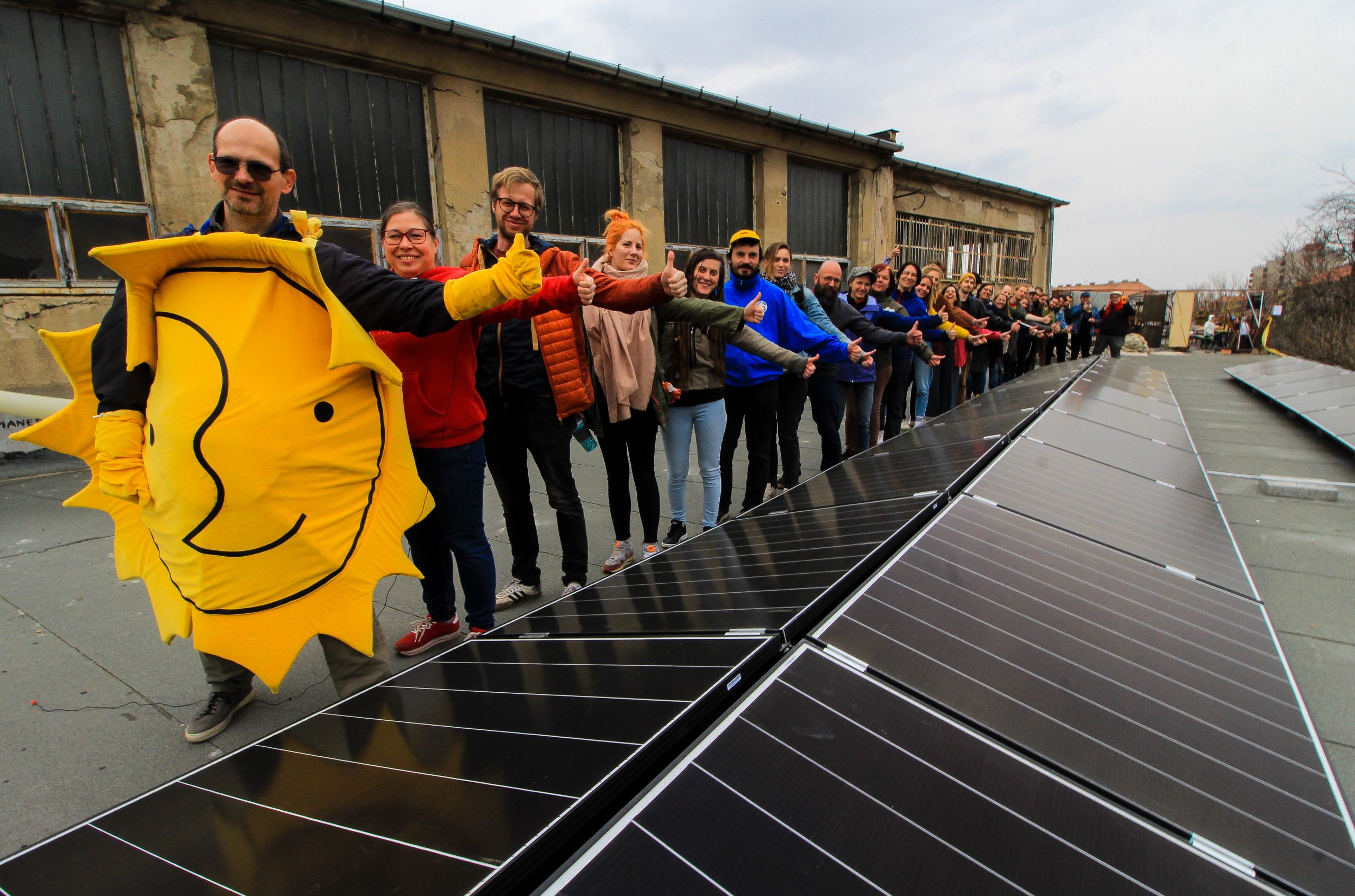Subscribe to our joint NEWSLETTER for
EUTROPIAN &
COOPERATIVE CITY MAGAZINE

Energy is central to the European Union’s transition to climate neutrality by 2050, in line with the European Green Deal. The energy sector is responsible for more than 75% of greenhouse gas emissions in the EU and therefore it needs a profound transformation towards a net-zero economy and to limit climate change.
Russia’s war aggression against Ukraine has also recalled Europe’s critical dependency on fossil fuel sources and the heavy economic toll it takes in case of shortages, in particular on vulnerable groups and sectors highly dependent on energy.
Eutropian is committed to the development of energy transition on a local scale, targeting neighbourhoods, industrial facilities and cultural hubs amongst others, to produce and consume renewable energy.

We are leading Energy4all, funded by the DUT program, a trans-European research project exploring the role of communities and the human dimension in designing and implementing Positive Energy Districts (PEDs) and Energy Communities (ECs).
We contribute to the development of participatory governance practices in the industrial and civic sectors to support the development of PEDs. We identify barriers to PEDs and ECs adoption to address shared challenges and develop a common ground for action. Ultimately we take care of communication and dissemination activities to share the project learnings with a wider audience.
Within the Co-PED project we are developing energy communities to support cultural centres as key social hubs to be environmentally sustainable and economically autonomous in terms of energy consumption.
Co-PED addresses the need for innovative financial and organisational models in energy communities, with a focus on Social and Cultural Centres (SCCs) as key actors of Positive Energy Districts (PEDs). By helping Social and Cultural Centres in strengthening the role of local communities in the energy transition, Co-PED aims to enhance collaboration between energy producers and consumers, encourage community participation, and support democratic decision-making and social inclusion. Co-PED brings together a diverse network of Social and Cultural Centres, research institutions, experts in knowledge transfer and policy, civic groups, as well as energy companies.
To foster direct implementation Co-PED creates eight Urban Living Labs (ULLs) across urban, peri-urban, and rural areas to explore Social and Cultural Centres role in the green urban transition, while also developing policy recommendations for advancing the energy transition.
Eutropian will lead on communication and dissemination, ensuring Co-PED’s results reach and inspire multiple stakeholder groups. We will develop policy recommendations and guidelines with a special focus on energy communities around SCCs, and facilitate knowledge transfer to local stakeholders — including businesses and cultural organisations.
Co-PED is funded by the Driving Urban Transitions programme.
| Cookie | Duration | Description |
|---|---|---|
| cookielawinfo-checkbox-analytics | 11 months | This cookie is set by GDPR Cookie Consent plugin. The cookie is used to store the user consent for the cookies in the category "Analytics". |
| cookielawinfo-checkbox-functional | 11 months | The cookie is set by GDPR cookie consent to record the user consent for the cookies in the category "Functional". |
| cookielawinfo-checkbox-necessary | 11 months | This cookie is set by GDPR Cookie Consent plugin. The cookies is used to store the user consent for the cookies in the category "Necessary". |
| cookielawinfo-checkbox-others | 11 months | This cookie is set by GDPR Cookie Consent plugin. The cookie is used to store the user consent for the cookies in the category "Other. |
| cookielawinfo-checkbox-performance | 11 months | This cookie is set by GDPR Cookie Consent plugin. The cookie is used to store the user consent for the cookies in the category "Performance". |
| viewed_cookie_policy | 11 months | The cookie is set by the GDPR Cookie Consent plugin and is used to store whether or not user has consented to the use of cookies. It does not store any personal data. |
